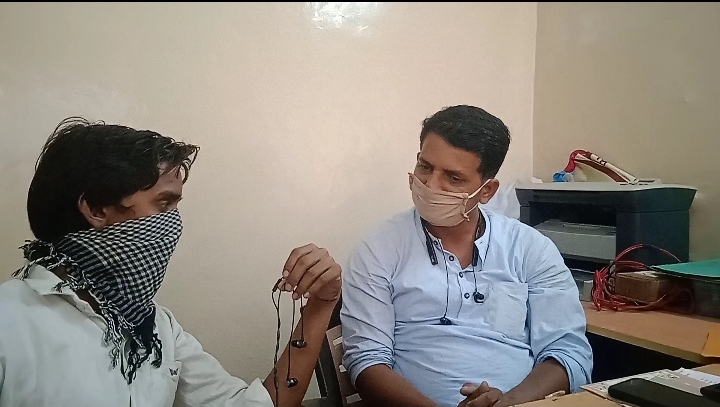
Story 4/10: Atiullah
"Before lockdown, we had 17 workers doing two 12 hour shifts a day. Now, only 10 of us are working: we still have 12 hours and somehow have to manage the overall production. Since the unit is not profitable, the employer cannot hire more workers." (1/5)
"Before lockdown, we had 17 workers doing two 12 hour shifts a day. Now, only 10 of us are working: we still have 12 hours and somehow have to manage the overall production. Since the unit is not profitable, the employer cannot hire more workers." (1/5)
In Atiullah's unit, the employer earlier employed 17 workers in 12 hour shifts. Now, with immense competition among smaller units & vendors not budging on rates, 10 workers must subsidise the value chain and unit with their physical labour & long work hours.
Even though he gets paid overtime, Atiullah feels burdened by the amount of work expected from him. Even as vendors continue to extract work from small units, Atiullah's employer must complete all his orders on time: otherwise he risks losing vendors and the closure of his unit.
Supply chains are 'recovering' only because big supply chain players are subsidised by the long, arduous work of informal migrant workers like Atiullah. With no redistribution of wealth or profits back to smaller units, body burdens are both a cost & a tool of survival.
There is some solace, Atiullah says: “At least I am working & my life has come back to normal! There are many workers who don’t have work, they are still in their villages and struggling to find work opportunities not only in Mumbai but anywhere else!” #InternationalMigrantsDay
• • •
Missing some Tweet in this thread? You can try to
force a refresh






